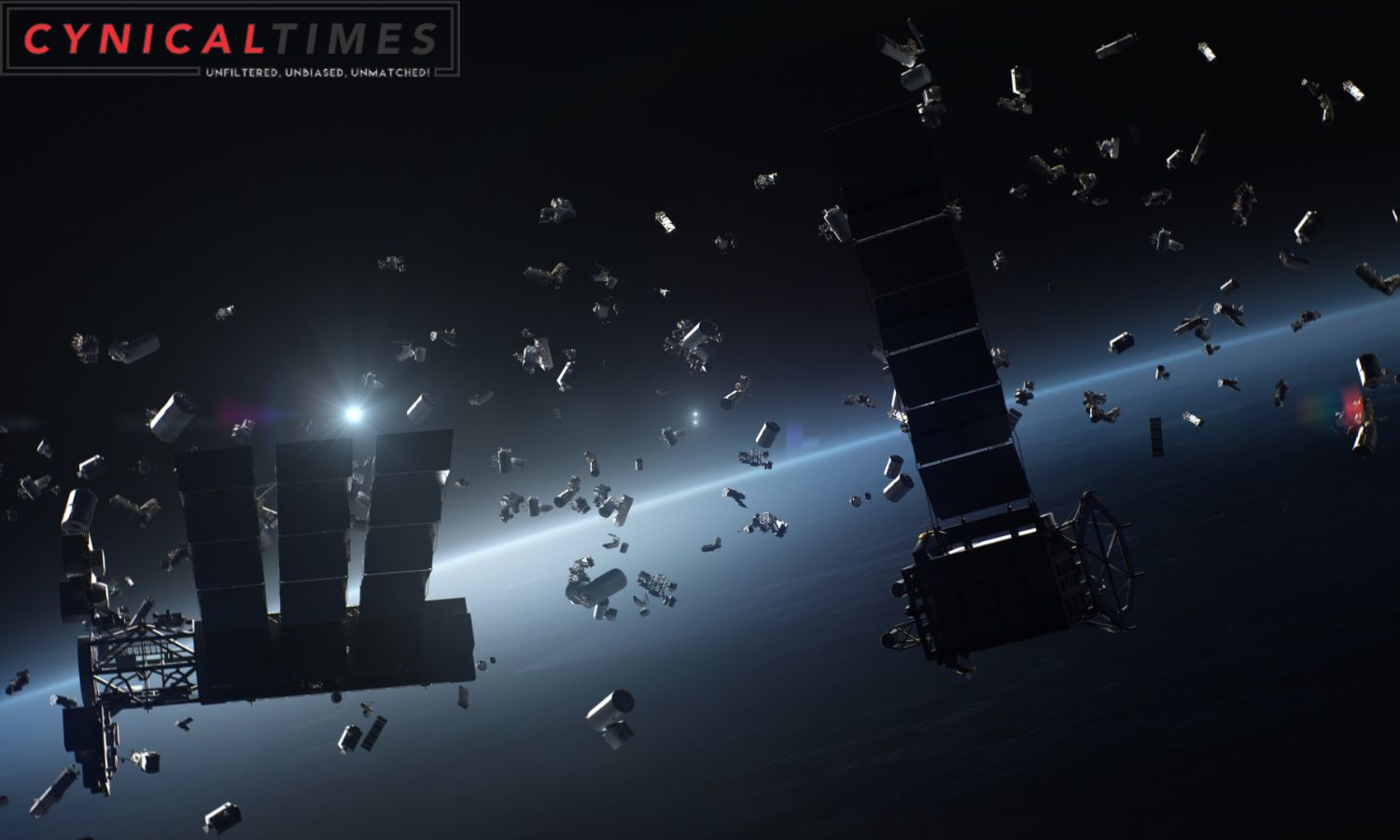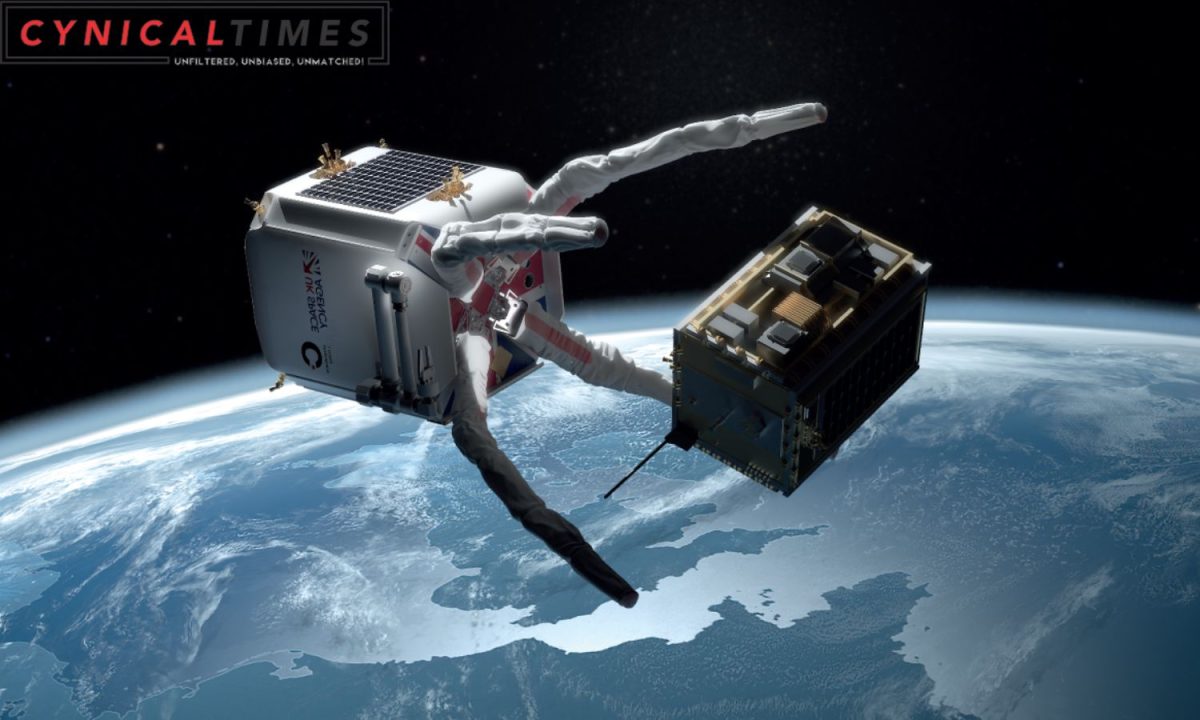NASA Space Junk Cleanup : NASA is collaborating with TransAstra, a US space logistics company, to address the issue of space debris in Earth’s lower orbit. Broken satellites, rocket stages, and mission parts are accumulating in space. This increases the chances of space missions encountering debris. NASA awarded TransAstra a $850,000 deal for the Phase 2 Small Business Innovation Research program. The company aims to create plastic bags that catch space junk and safely return it to Earth. NASA’s work on the Asteroid Redirect Mission led to the inflatable bag technology. NASA’s Innovative Advanced Concepts program funded TransAstra to develop catch bags. These bags come in various sizes and shapes to catch space debris, including broken satellites and rocket bodies. Once the debris is in the bag, its inflatable ribs will tightly close, keeping it inside.
The next step is to send the spaceship with inflatable bags into Earth’s lower orbit. The bag seals when the inflatable legs fill it with air. The spacecraft can collect and dispose of trash in various parts of Earth’s orbit using the inflatable bag. Once the bag is full, the spaceship will use special propulsion to return to Earth’s atmosphere.There are many things that could be improved with the plan. TransAstra’s CEO, Joel Sercel, states that space junk must be captured at a matching speed due to its constant movement. The process involves opening the bag, wrapping it around the trash, and closing it. The task needs many resources, making fuel conservation difficult. The inflatable bag aims to collect maximum trash with minimal fuel usage.
Also Read : Apple 3D Printing Smartwatch: How the Tech Giant is Revolutionizing Manufacturing and Sustainability
The NASA and TransAstra relationship is in testing, but it could help solve the space junk problem. Space is littered with human-made trash and must be cleaned up promptly. If space missions collide with trash, it could hinder their progress and satellite functionality. NASA’s collaboration with TransAstra to develop flexible bags for capturing space junk may prove beneficial as debris accumulates.
If successful, this project could reduce space trash, making future trips safer and more sustainable. Despite ongoing issues, new ideas and collaboration between government agencies and private companies offer hope for a cleaner and safer space environment.As the partnership progresses, observers and space fans eagerly await the results of inflatable bag technology testing and potential use. The effort highlights the importance of finding new ways to address space debris problems and working with technology to shape the future of space exploration and preservation.
Our Reader’s Queries
What is NASA doing to clean up space debris?
To tackle the issue of small space debris, experts have come up with a couple of solutions. One is to design satellites that can be safely brought back to Earth at the end of their mission. Another approach is to conduct active debris removal missions. These methods aim to reduce the amount of debris floating around in space, which can pose a threat to functioning satellites and spacecraft. By taking proactive measures, we can help ensure the safety and longevity of our space technology.
How is space junk being cleared?
To tackle the problem of orbital debris, space vehicles can be sent to capture and remove the junk using tools like a net, harpoon, or robotic arm. While this approach has not been attempted before, the RemoveDEBRIS mission is set to be the first to successfully execute it. By employing innovative techniques and cutting-edge technology, this mission aims to pave the way for a cleaner and safer space environment.
What is the 25 year rule NASA?
As more multi-satellite constellations are launched, the risks posed by space debris are on the rise, especially in low-Earth orbit (LEO). The current rule of thumb is that LEO satellites must either be deorbited or moved to a graveyard orbit within 25 years of completing their mission.
How much junk is left in space?
Over 25,000 objects that are bigger than 10 cm are currently known to exist in space. It’s estimated that there are around 500,000 particles that are between 1 and 10 cm in diameter. The number of particles that are larger than 1 mm is over 100 million. Shockingly, as of January 2022, the amount of material orbiting the Earth has surpassed 9,000 metric tons.


